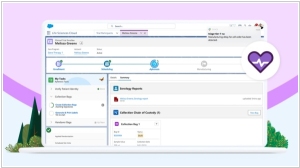Customer Review websites
Updated: February 03, 2024
Customer review websites are online platforms where customers can share their opinions, experiences, and feedback about products, services, or businesses. These websites serve as a valuable resource for consumers seeking honest and unbiased reviews before making purchase decisions. Customers can rate and review various aspects of a product or service, helping others gauge its quality, reliability, and overall value. Popular customer review websites often use a rating system, with stars or points, to summarize overall customer satisfaction. These platforms play a significant role in shaping brand reputation and influencing consumer choices, making them a critical consideration for businesses seeking to maintain positive customer relationships and improve their offerings based on customer feedback. By harnessing the power of customer review websites, businesses can gain valuable insights, build trust with their audience, and continuously enhance their products and services to meet customer expectations effectively.
See also: Top 10 Social Media Management tools
See also: Top 10 Social Media Management tools
2024. Yelp introduces AI-generated summaries of restaurants, bars, and more
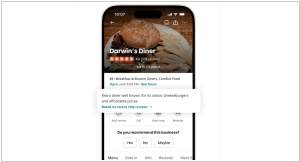
The original online review platform, Yelp, has unveiled AI-driven business summaries along with several other enhancements catering to both businesses and users. Employing large language models (LLMs), Yelp's innovative technology analyzes recent reviews to create concise summaries, offering accurate portrayals of each business, including details like ambiance, service quality, amenities, and recommended dishes. This approach is reminiscent of a recent Amazon feature that also leverages LLMs to distill product reviews into brief summaries, streamlining information for users. Currently accessible on iOS, Yelp's AI-generated business summaries are set to extend to Android and desktop platforms later this year, providing a time-saving solution for users.
2020. Yelp adds new features for reopening businesses
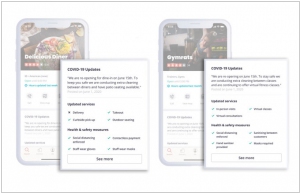
Over the past few months, Yelp has been taking measures to assist businesses grappling with the repercussions of the COVID-19 pandemic. These efforts include initiatives such as waived fees, virtual service listings, and GoFundMe fundraisers. As the United States moves towards reopening, albeit with ongoing debates about the timing and approach, it is evident that businesses will require new tools to navigate the evolving landscape safely. With this in mind, Yelp is introducing two new tools today. Additionally, Yelp plans to employ a combination of human moderation and machine learning to update these sections regularly, incorporating information provided by businesses elsewhere, such as details regarding curbside pickup or virtual services.
2020. Foursquare merges with Factual

Foursquare, the renowned location platform, has revealed its plans to merge with Factual. Foursquare has transformed significantly since its inception in 2009. Initially, it served as a location-based social network, enabling users to check in at various places, share their experiences with friends, and earn badges. However, the company has evolved over time into an advertising and marketing platform that capitalizes on the power of location data. On the other hand, Factual, also established in 2009, started as a repository for open data but gradually shifted its focus towards leveraging location data to enhance advertising efforts. Factual offers brands the capability to track the effectiveness of their marketing campaigns by measuring the extent to which such campaigns drive physical visits to stores. Given these synergies, the merger between Foursquare and Factual appears to be a promising match.
2016. Foursquare will allow businesses to know if their ads bring customers into actual store
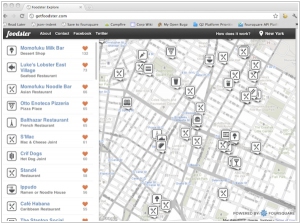
Foursquare has introduced a new offering aimed at enabling advertisers to assess the impact of their campaigns. Through Attribution Powered by Foursquare, the company is granting access to its data for advertisers, irrespective of whether they run campaigns within the Foursquare or Swarm apps. The data primarily revolves around location, which sets Foursquare apart from competitors such as Facebook and Twitter. These platforms have also been striving to extend their advertising capabilities beyond their respective properties.
2014. Yelp allows not only choose the hotel, but to book it too
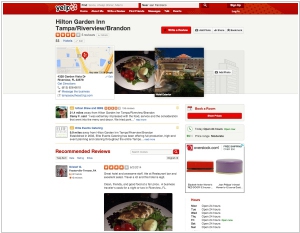
Review site Yelp has collaborated with travel booking site Hipmunk, enabling users to conveniently book hotels directly through Yelp's website and mobile applications. This integration follows Yelp's previous partnerships announced earlier this year, including collaborations with companies such as OpenTable and Delivery.com, aimed at providing seamless transaction experiences for users without having to leave the Yelp platform. When users search for supported hotels on Yelp, they will now encounter a prominent "Book a room" button on the hotel page. Should they decide to proceed with the booking, they will be seamlessly redirected to a dedicated booking page. By incorporating booking capabilities, Yelp becomes more competitive with platforms like TripAdvisor, which allows users to book accommodations through its website in partnership with Expedia, Booking.com, and Hotels.com.

